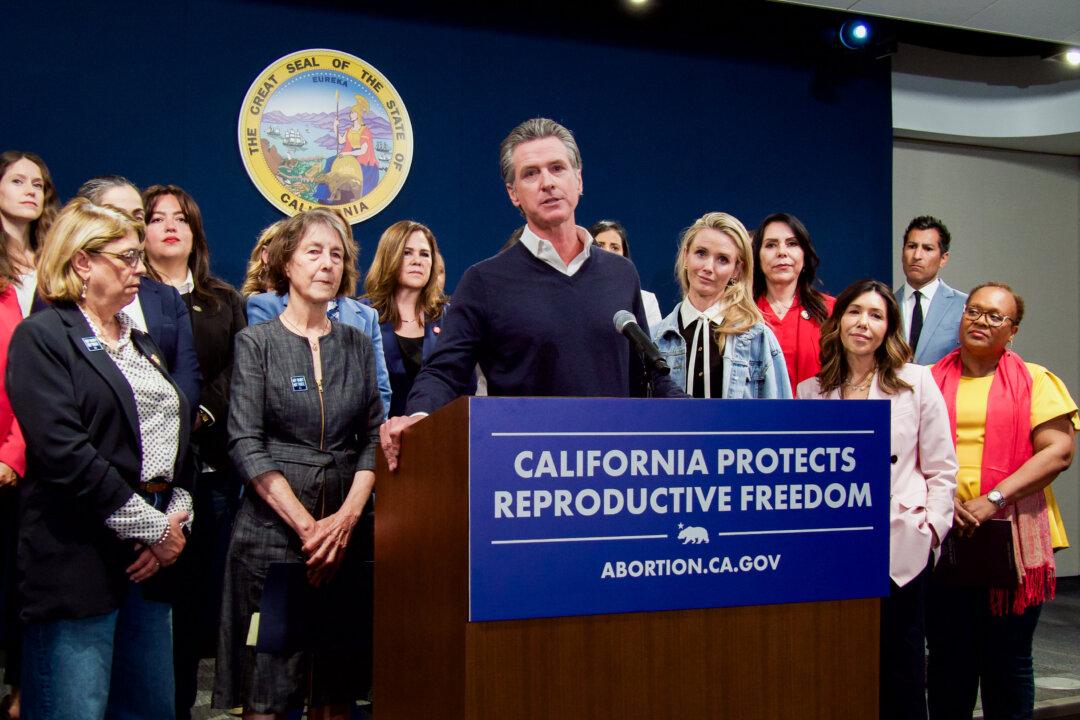California Gov. Gavin Newsom signed a bill into law on May 23 allowing Arizona doctors to travel to the Golden State on a temporary basis to perform abortions for their patients.
Senate Bill 233, introduced by state Sen. Nancy Skinner and Assembly Majority Leader Cecilia Aguiar-Curry, allows licensed Arizona abortion providers to come to California and provide abortions or abortion-related care to patients from Arizona who travel to the state for such procedures until near the end of this year.




